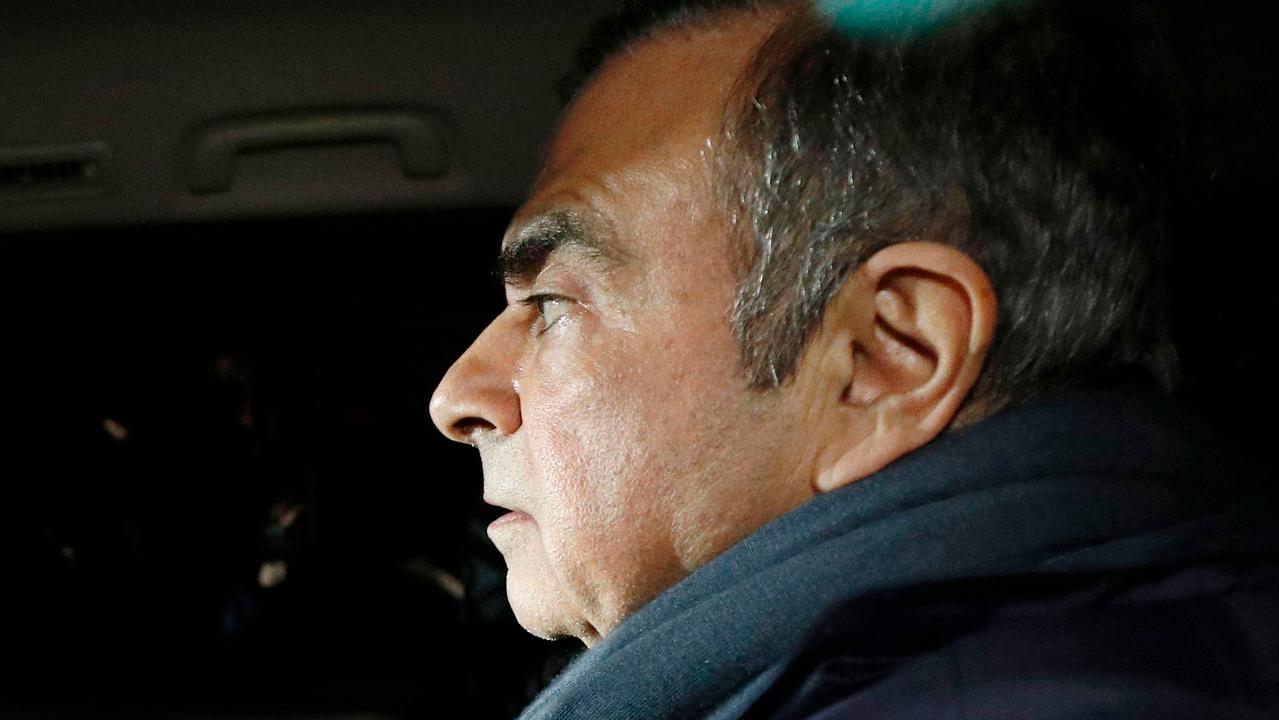Ex-Nissan head Carlos Ghosn arrested, again, by Japan
Japanese prosecutors arrested Carlos Ghosn again on Thursday on suspicion the former Nissan boss had tried to enrich himself at the automaker's expense, in another dramatic twist that his lawyers said was an attempt to muzzle him.
The arrest, which legal experts not connected to the case described as highly rare for someone already released on bail, marks the fourth time that prosecutors have arrested the once-feted executive, a scandal that has rocked the global auto industry and shined a harsh light on Japan's judicial system.
Tokyo prosecutors said Ghosn had caused Nissan Motor Co $5 million in losses over a 2-1/2-year period to July 2018, in breach of his legal duties to the company and with the goal of personal gain.
The Kyodo news agency reported that the losses involved the shifting of funds through a dealer in Oman to the account of a company Ghosn effectively owned. The agency did not cite any sources.
Ghosn, who holds French, Lebanese and Brazilian citizenship, called on the French government for help.
"I am innocent," Ghosn said in an interview aired on Thursday with French TV stations TF1 and LCI. "I call on the French government to defend me, and to defend my rights as a citizen."
It was not clear where the interview was recorded. France's finance minister said Ghosn must have the presumption of innocence and was getting consular protection.
His lead lawyer, Junichiro Hironaka, said prosecutors wanted to silence Ghosn who on Wednesday tweeted plans to hold his first press conference on April 11.
"The intent of the prosecutors is to pressure Ghosn, and to stop him from speaking freely," Hironaka said, adding that access to what they saw as additional evidence was also a likely motive behind the latest arrest.
The additional charge would likely prolong Ghosn's trial, which is expected to begin later this year, Hironaka said, adding that loss of access to Ghosn's trial-related documents could put his client at a disadvantage in fighting his case.
Prosecutors confiscated Ghosn's mobile phone, documents, notebooks and diaries, he said, along with Ghosn's wife's passport and mobile phone. Hironaka said he would release a video statement Ghosn had planned to deliver at the April 11 news conference, without saying when.
An official for the Tokyo prosecutors' office told reporters on Thursday that authorities feared Ghosn would destroy evidence. The official declined to comment when asked about the confiscation of Ghosn's wife's possessions.
FINANCIAL MISCONDUCT CHARGES
More than a dozen officials from the prosecutor's office had visited Ghosn's residence early on Thursday and asked him to submit to questioning, broadcaster NHK said. By late morning, Japanese media said he had been taken back to the detention center where he spent 108 days after being first arrested in November.
Nissan said it could not comment on judicial decisions.
Ghosn faces charges of financial misconduct and aggravated breach of trust over allegedly failing to report around $82 million in salary and temporarily transferring personal financial losses onto Nissan's books during the financial crisis.
Released on $9 million bail on March 6, the executive says he is the victim of a boardroom coup.
Under Japanese law, prosecutors will be able to hold him for up to 22 days without charge. The fresh arrest opens up the possibility that he will be interrogated again without his lawyer present, as is the norm in Japan.
Such procedures have focused much attention in the West on Japan's judicial system, which critics sometimes refer to as "hostage justice," because defendants who deny their charges are often not granted bail.
"It's uncommon for someone to be re-arrested a month after being granted bail. In most cases, re-arrest would occur immediately following bail," said Nobuo Gohara, a lawyer who heads Gohara Compliance and Law Office, which is not involved in the Ghosn case.
"Multiple arrests suggest that the prosecutor may be concerned about their chances of winning a guilty verdict."
INTERNAL INVESTIGATION
Nissan late last year expanded its internal investigation into possible financial misconduct related to its business in the Middle East, India and elsewhere.
Sources told Reuters this week that French automaker and Nissan partner Renault SA had alerted French prosecutors after uncovering suspect payments to a Renault-Nissan business partner in Oman while Ghosn was chief executive.
Evidence sent to French prosecutors showed that much of the cash was subsequently channeled to a Lebanese company controlled by Ghosn associates, the sources said.
Ghosn's French lawyer has denied the allegations.
CLICK HERE TO GET THE FOX BUSINESS APP
Nissan had previously established its own regional subsidiary made questionable payments of more than $30 million to the Oman distributor, Suhail Bahwan Automobiles (SBA).
Ghosn's spokesman has said payments of $32 million made over nine years were rewards for the Oman firm being a top Nissan dealer. Such dealer incentives were not directed byGhosn and the funds were not used to pay any personal debt, the spokesman said.




















